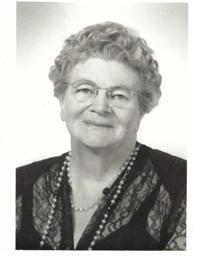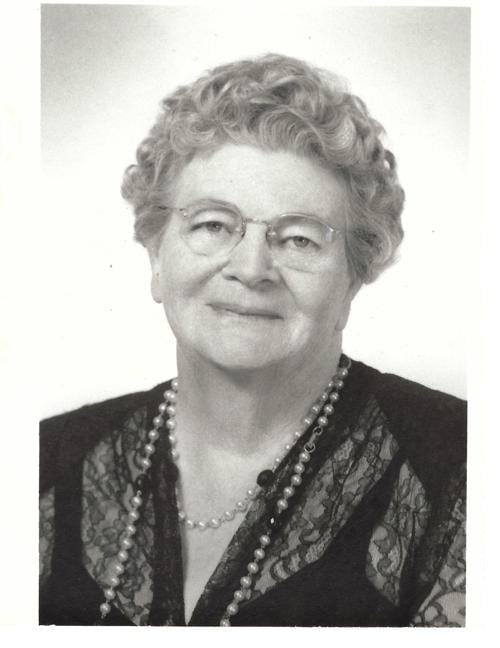When Charlotte “Lottie” Colton Devine was born Nov. 22, 1889, in Florence, Arizona, the town was reeling from the aftermath that same year of the escape of Apache prisoners who had murdered their guards and fled into the desert.
Most were eventually caught and placed in the Florence jail. The one Native American who escaped, the Apache Kid, became known as the most feared desperado in Arizona Territory. He was never caught.
Outlaws would continue to play an integral role in Lottie’s life.
At age 10, she found herself in the crowd trying to catch a glimpse of the lady bandit Pearl Hart who had been caught and held in the Florence jail for robbing a stagecoach. The whole town had turned out to see the woman outlaw, including Lottie and her sister Georgia. Pearl smiled and waved at two girls. The youngsters were delighted to be recognized by such a fascinating woman.
Pearl was still wearing the men’s clothing she had donned before holding up the stage, including a pair of flowered suspenders. The men of Florence found her fascinating, bringing her gifts to gain her attention. The townswomen, according to Lottie, also liked to sneak a peek at the female outlaw who so beguiled their besotted menfolk. The entire town “found her pleasant, with an easy way of talking,” Lottie said, “but as they left she gave them a ‘cussing’ they never forgot.”
“I was such a curious somebody about all the goings on,” Lottie wrote in her childhood autobiography, “Es Verdad” or “It is True,” penned in 1964. She recalled the time as a young child when her mother sent her outside with a bowl of bread and milk. She watched as Lottie took her bowl to the wood pile and set it down. Curious, she followed the child and watched as a bull snake Lottie had befriended came up to the bowl and started drinking the leftover milk. “Papa was not satisfied until he found the snake,” Lottie said, “and was sure it was not a rattler. He let it go its way.”
She was curious, as well as exceptionally intelligent, so that her parents often spelled out words during conversations so she would not understand what was being discussed.
“One evening we had as guests Mr. and Mrs. Wm. Cooper,” Lottie said, “he was the assistant editor of the Blade-Tribune newspaper for a few years. Mama had given me watermelon to eat in the dining room, Alberta (Lottie’s younger sister) kept tugging at me to give her some, so I called out, ‘Mama, can baby sister have some of the d-a-m watermelon?’ I got my name in the next edition of the paper and folks stopped spelling.”
Lottie’s mother, Mary, was one of the first teachers in the new Florence schoolhouse while her father, Albert, along with working as chief engineer and superintendent for the Florence Canal Co., served as deputy clerk of the U.S. Court in Florence.
In 1903, the family moved to Safford. Lottie attended school in Morrison, Illinois, until age 19 when she took a teaching position in Solomonville, Arizona. Two years later, she returned to Florence to teach.
In 1912, Lottie married Edwin O. Devine who served as Pinal County justice of the peace along with his duties as Florence police judge. The couple had two children: Edwyna, born in 1914, and Jonelle in 1920. Jonelle died at the age of 10.
For several years, Lottie enjoyed the position of editor of women’s activities on the Blade Tribune along with running the school cafeteria. When Edwin died in 1944, Lottie was appointed to finish his term as justice of the peace. At the same time, she was appointed town magistrate by the Florence Town Council.
Since Edwin’s office sat unoccupied for several weeks, Lottie decided it needed a good cleaning. After working in the school cafeteria all day, she set to work scrubbing off a layer of dirt in the disheveled office. Suddenly, the phone rang and Lottie was informed by the Superior Court clerk’s office that a couple wanted to get married.
Lottie, thinking it was a joke since she had just recently been sworn in, hung up the phone and went back to dusting and sweeping. A few minutes later, the engaged couple walked into the office and reassured Lottie they certainly did want to marry. Lottie quickly powdered her nose, put away her broom and performed the ceremony.
Of the many cases brought before Lottie, several stand out. She bound an escaped prisoner over to the Superior Court after he beat the wife of the Arizona State Prison farm superintendent over the head with a hammer. She levied a particularly large bond against a man who was accused of shooting up the old sheriff’s office building in Superior, Arizona and wounding two men. And she was especially hard on drunken drivers who were used to being sentenced to a mere weekend in jail for their transgressions. Instead, she fined them $100 and 10 days in jail for their first offense.
In all the years Lottie served as justice of the peace, no one opposed her. She stayed on the job until 1955 when she announced she was ready to retire. But in 1959, she was reappointed to the position and stayed in office until her official retirement in 1963. She became the first Arizona justice of the peace to be given a lifetime membership in the Arizona Justice of the Peace Association.
Always active in community organizations, Lottie served as president of the Florence Business and Professional Woman’s Club and was once selected Woman of the Year. She also founded a similar club in Apache Junction. During World War II, she worked in hospitals and private homes taking care of the sick, injured and disabled. She also chaired the county Red Cross.
If that was not enough, in her spare time, Lottie wrote and directed two minstrel shows, one performed in Casa Grande and the other in Florence.
Lottie died June 19, 1967, at the age of 77. She is still remembered in Florence as the little girl who let little stand in her way and took that philosophy with her throughout her terms of office.





